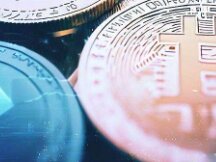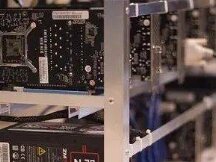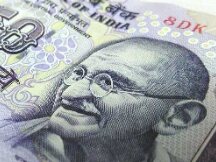Legal Status of Stabilitycoins Virtual Currencies in China
Due to the volatile exchange rate of virtual currencies, fixed currency virtual currencies have emerged, and among them, the USDT is the leader. However, fixed income is not the same as legal interest. According to the Company's "Banking Law", the legal interest of our country is RMB. , and the publisher is the Financial Corporation of China. prohibited to any other organization. The current situation of the circulation of all kinds of currencies like fiat currency in the Chinese market. However, article 127 of the “Legal Code” of our country also states: “If the law contains rules for data and protection of the virtual network, please follow these rules. "
The court's decision on whether USDT is a virtual asset is not yet clear.
Let's look at the first two cases is the conflict of opinion between Zhang Yingchun and ATOS (Beijing) Technology Co., Ltd. (2019) Beijing 0105 Minchu 63366 (2019) Beijing 0105 Minchu 63366, regional hearing in Chaoyang People's Court, Beijing.
In this case, the defendant company ATOSHI demanded to pay its employee Zhang Yingchun in virtual currency worth 22,200 yuan, but the court ultimately ruled that Article 50 of the People's Bridge of China Criminal Procedure Code made it clear that wages must be paid. Self-employed for employees in monthly currency. Article 8 of the “Foreign policy of the company, company, company, company, company, company, company, company, company, company, company, company, company, company, company, company, company, company, company, company, company , Company Company Company Limited Company Company Company Company Company Company Company Company Company Company Company Company Company Company Company Company Company Company Company Company Company Company Company Company Company Company Company Company Company Company Company Company Company Company Company Company Company Company Company Company Company Company Company Company Company Company Company Company Company Company Company Company Company Company Company Company Company Company Company Company Company Company Company Company Company Company Company Company Company Company Company Company Company Company Company Company Company Company Company En enterprise Enterprise The country is not authorized by the state. Another rule In this case, ATOSHI payments in virtual currency will not be considered a violation of the law.
The second is the second dispute between Li Lishi and Wang Shubin (2020) Hu 01 Min Zhong 12524, which was tried by the Shanghai First Intermediate People's Court.
In this case, Li Lishi's salary was paid in USDT (TEda currency), and Wang Shuobin's salary was always paid by the chairman of the Foundation, Wang Shuobin. When Wang Shuobin decided, the salary of the other person should be 8,000 USDT (TEda currency). ), he found that the payment was incorrect is 80,000 USDT (TEda currency) and immediately asked someone else to refund more than 72,000 USDT (TEda currency), and many communications failed.
The court heard that the main point of contention in this case was whether Li Lishi received 80,000 USDT (TEda coins) from Wang Shuobin on December 18, 2019, at 72,000 USDT (TEda coins) was unfair. Finally, Li Lishi collected 72,000 USDT (TEda Coins) on the same day for a non-profit, for specific reasons:
First of all, the USDT (Teda Coin) issue is legally designed as a virtual device on the internet. Article 127 of the Civil Code of the People's Republic of China states the following:
"If the law contains rules for protecting data and virtual networks, follow those rules.."
Thus, the law has a positive attitude towards the protection of virtual devices on the Internet. Conflict USDT (TEDA coins) are data-based virtual devices that can be specially designed, managed and used by regulators, can be traded and have the characteristics of ownership. According to Li Lishi and Wang Shuobin's plan to replace Li Lishi's currency with USDT (TEda currency) and US dollar, both parties also understand and agree on USDT (TEda currency) assets. Therefore, the USDT in which the disputing parties have an interest is owned and protected by law.
Second, article 122 of the “Constitution of the People's Republic of China” reads as follows:
Because the other person has no legal rights and is not satisfied, the victim has the right to claim the bad results.
From the perspective of the composition of injustice, one side wins and the other has no legitimacy, so there is a correlation between income and loss. In this regard, according to WeChat documents discussed between the two parties on December 18, 2019, the reason Wang Shuobin moved to Irisi today is to pay his salary last month and have no reason to pay. The next day, Wang Shuobin called Li Lishi and informed him of the error by signing 8,000-80,000 and asked Li Lishi to return an additional 72,000 USDT (TEda exhibit).
Finally, Li Lishi received the USDT (TEda currency) from Wang Shuobin on the same day to receive his salary in November 2019. According to his salary model, Wang Shubin asked for 8,000 USDT (TEda currency)) in total, the wages and bonuses are equal. Li Lishi is legally authorized to receive 8,000 USDT from Wang Shuobin (TEda coins). The 72,000 USDT (TEda coin) that Li Lishi never had was real and legitimate, and Wang Shuobin suffered from the case. is. Li Lishi's benefits and Wang Shuobin's damages, which are mistaken benefits, must be returned. Article 184 of the Civil Code of the People's Republic of China states: appropriate. "
Consider Li Lishi's statement that the original goods cannot be returned and there is no legal basis for the market value of USDT (TEda), the first court according to the wishes of both parties on the Based on the value of USDT (TEda) and the value of USDT will be determined in 2020. Based on the fall of both sides in January, 1 USDT (Teda) = 6.9 RMB, the repayments in RMB depreciated will not be greater than the amount guaranteed in the “Agreement” reached by the 5th. Discounted models are not suitable for the period when performance is incorrect.
In the above two cases, the question is whether it is legal for employers to pay payments in USDT, and Beijing law decides to use payments in USDT. The employment is in violation of employment rules and currency and payment regulations. Incorrect. Shanghai law instead determines that USDT is a virtual asset on the Internet, and if both parties agree to pay in USDT, the rights must be protected and payment of funds is acceptable. Therefore, it seems that Shanghai recognizes the virtual assets of the USDT and accepts that the USDT can be traded in the Chinese market and be protected by law, but this does not happen.
In the appeal judgment 0113 Min Chu 2912 of the Baoshan District People's Court in Shanghai (2020), the plaintiff and the defendant signed a financial management agreement, but the financial management of both parties is the business of USDT. He ruled that the financial misconduct was a public and cultural fault, and he was involved in financial misconduct, causing serious damage to the economy. According to the third clause of Article 143 of the "Development Code of the Constitution of the People's Republic of China", a trustworthy financial management contract does not exist and is not protected by law. Therefore, the USDT sales contract is considered a violation of public order and morals and nothing, and the company is not protected by law.
Based on the above USDT complaint decision-making strategy, it can be seen that the USDT exchange rate impact is a risk of the existing legal process. It is not stable in China, so citizens should be careful.

Scan QR code with WeChat































